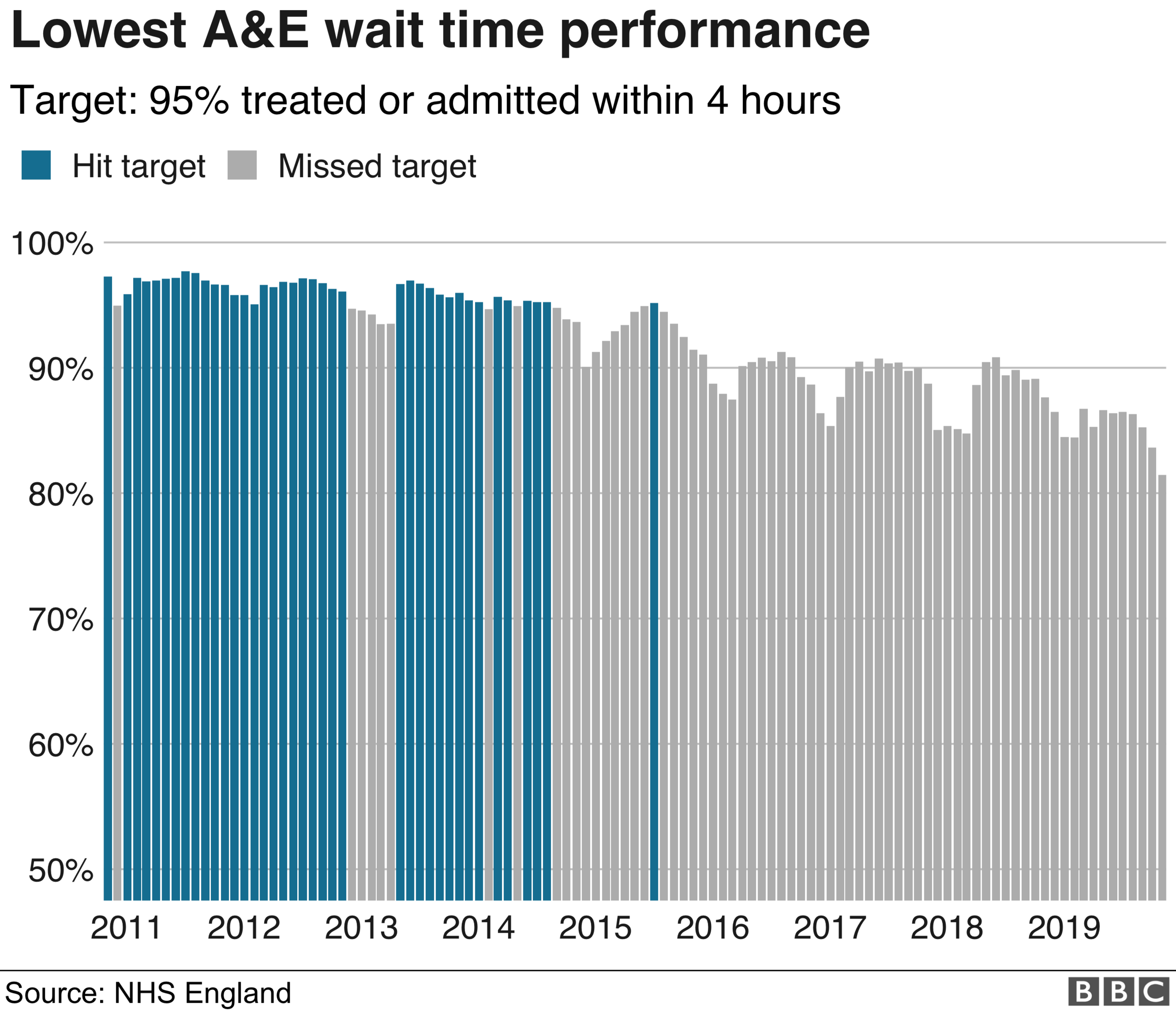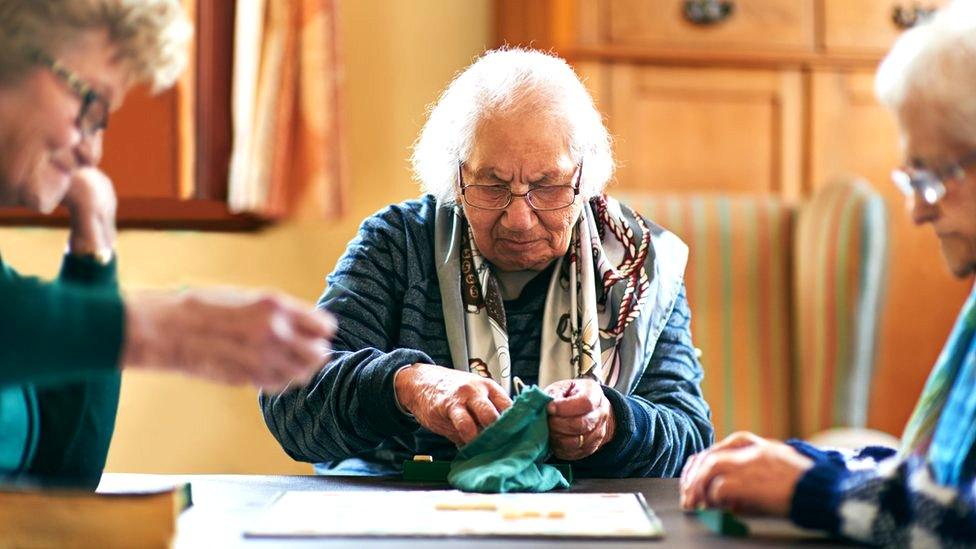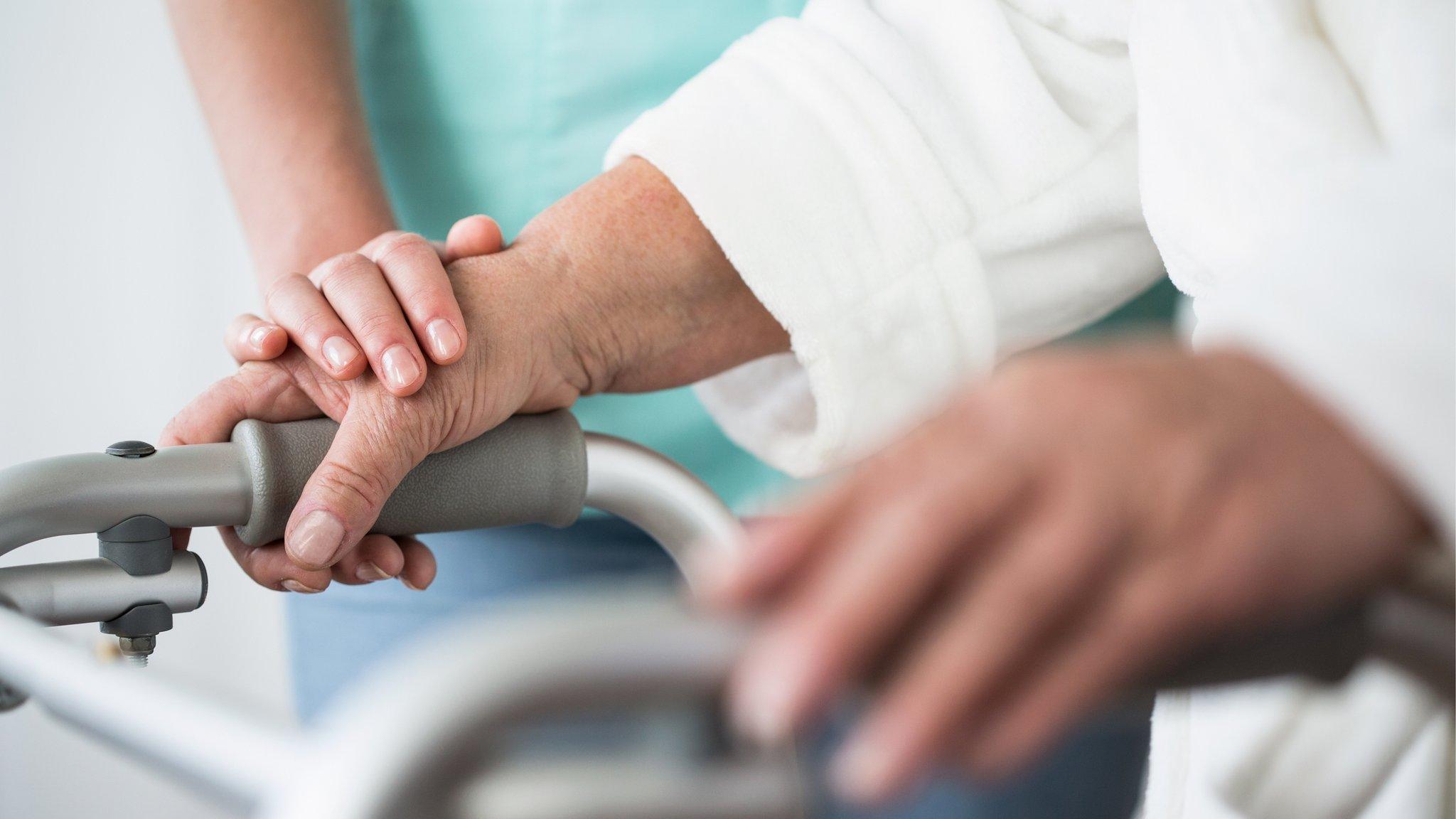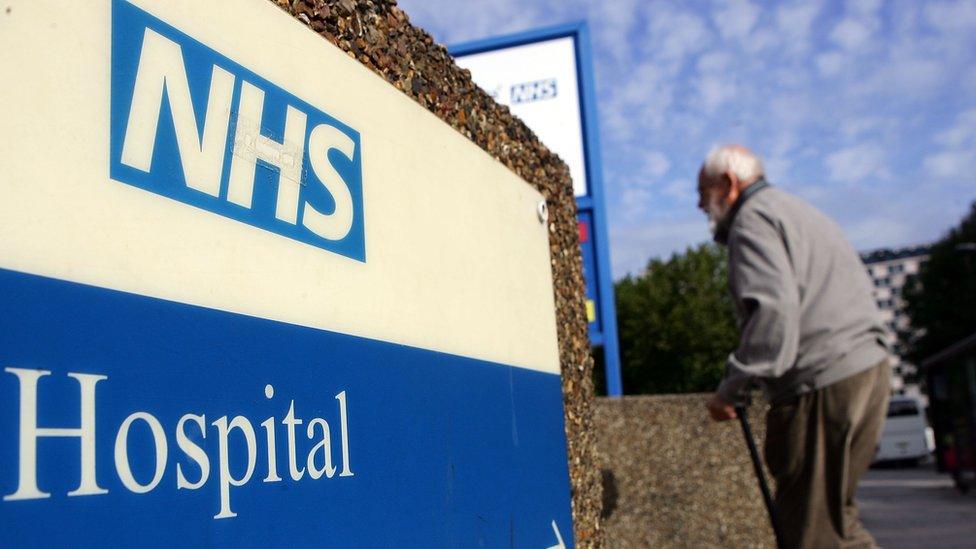Why NHS is front and centre of Queen's Speech
- Published
The government has put the NHS front and centre of the Queen's speech.
That is understandable. Behind-the-scenes ministers and advisers are saying that to keep hold of the voters that backed them at last week's general election there has to be an improvement in NHS performance in England.
Health is devolved so the Westminster parliament does not control policy elsewhere in the UK.
Waiting times for both A&E and hospital operations, such as knee and hip replacements, have both sunk to record worst levels since the respective targets were introduced.

Vacancy rates have also been rising with services reporting they are struggling to fill rotas.
A law to guarantee funding?
The government is making big play of the extra funding it is putting in alongside the other measures in the Queen's Speech.
But experts within the health service have warned even with the above-inflation sums going in it will take years to turn the NHS around and get it back to where it was a decade ago in terms of waiting times and performance - perhaps even a decade.
That is the challenge facing Boris Johnson's government and why minds are so focussed on the NHS in these early days of this parliament.

The proposals being put forward are more political than detailed answers to the problems.
The idea of enshrining into law the multi-year NHS funding settlement sounds more significant than it actually is.
The five-year plan, which sees the budget grow by 3.4% a year to 2023, was unveiled last year and was included in the Tory election manifesto.
It is unthinkable the government would not deliver on it. The fact that there is now a law in place compelling them to keep to the promise makes little difference in reality.
Facing up to the workforce challenge
Also in the Queen's Speech is the promise of legislation to make it easier to recruit doctors from abroad.
This includes fast-track visas and support for doctors, nurses and other health staff applying for jobs from abroad.
Pledges have been made to attract an extra 6,000 GPs and 50,000 nurses, and the government knows it faces a tough task filling the vacancy rates and growing the workforce.

But currently one in 12 posts is vacant and the amount of staff coming from the EU to work in the NHS has fallen since the referendum in 2016.
The numbers of doctors and nurses in training are being increased, but it will be years before the full benefit of these will be felt.
In the meantime international recruitment will be crucial.
Also mentioned is free hospital parking for the most in need - people with disabilities and parents of sick children - and a new body to improve patient safety.
What about social care?

There is little detail about social care - despite Boris Johnson promising to "fix the crisis in social care once and for all" in his first speech as prime minister, outside Downing Street in the summer.
Instead, he wants to seek cross-party agreement on the way forward - something that is unlikely to happen quickly given both Labour and the Lib Dems have been plunged into leadership races following the election.
Social care is crucial to the future of the NHS. One in 20 beds are occupied by patients who are ready to be discharged but cannot be because there is no available support in the community.
This has a knock-on effect on waiting times across the board.
The government is making a lot of noise about the NHS today, but the hard work is only just beginning.
- Published4 August 2019

- Published6 January 2019

- Published8 February 2017

- Published8 February 2017

- Published6 January 2017

